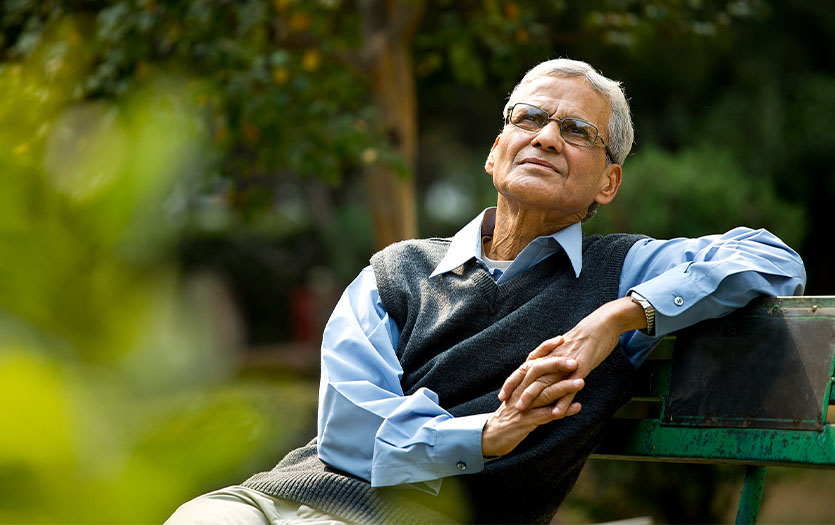Enjoy this excerpt from “How To Talk With Sick, Dying and Grieving People: When there are No Magic Words to Say (Resources on Faith, Sickness, Grief and Doubt) (Volume 1)” by Patrick Riecke, director, Chaplaincy and Volunteer Services.
Many times I have heard people talk about waiting for a miracle for their loved one. The idea that our mom, son, or grandpa might not make it out of this situation alive is so difficult to consider that our mind naturally wants to escape. Sometimes, for people of faith, we can get stuck in Phase Two. Remember, the theme in Phase Two is God will help me to overcome my difficulties.
I have painfully witnessed parents of children who were imminently dying still holding on to the slim possibility that God will do something dramatic just before their child dies to save them and restore them to health.
I admit that once, when I attended the funeral of a young person who should not have died yet, I prayed for that person to miraculously resurrect even during the funeral service itself! I was definitely stuck in Phase Two.
Is there anything wrong with praying for a miracle?
No, of course not.
Let’s put a finer point on it.
What are we doing when we pray for a miracle? The most accurate verb is hope. We are hoping that something will change. We place our faith in God, who can do whatever he would like at any point in time, and we hope that he will heal the sick person.
Hope helps the heart.
But hope is not a plan.
And sometimes, only focusing on that hope, only talking about praying and hoping and not talking about preparing and processing can cause problems.

Think about Ed’s family. Ed is a very sick, very elderly man. The medical team has served him well, and now it’s their opinion that he is at the end of his life. And even if he does "survive", they are painting a difficult picture of what life would look like for Ed. The family should expect a permanent ventilator, feeding tube, and twenty-four hour care at least.
For Ed’s family to continue to only hold out hope for his miraculous healing can raise a number of problems:
- When we only hope for a miracle, we aren’t dealing with the present.
As I sat in one family meeting, the family members told the care team that they didn’t want to hear anything negative because God was going to heal their sister. Meanwhile, their sister was so near death that it would certainly have taken a miracle to save her.
As a chaplain, they implored me to maintain hope that God would heal her. I told them I always maintain that hope for every sick patient who wishes to get better, but that we had to think about what we were going to do while we waited for a miracle.
By focusing only on hope for the future, they weren’t able to really deal with the present.
- When we only hope for a miracle, and then the person dies, the pain is multiplied.
After presenting the content of this book in a daylong workshop, one of the attendees came up to me and mentioned this topic of waiting for a miracle.
She was angry.
But not angry at me. She was angry at a recent family situation.
Her brother-in-law had died far too young.
He had children, her nieces and nephews, at home and they were all devastated when he died.
But the devastation was made more complicated because of the presence of a faith community in the life of the family. The community was certain that the man would be healed, even until the very end. And whenever the family would seem to ‘lack faith’, the people from the church would scold them and tell them that God was going to do a miracle.
Whether or not God did a miracle, I do not know. But she told me that her brother-in-law had in fact died and now the family is in shambles. Not only have they broken ties with that church (which is a good thing, in my opinion), they have gone their separate ways as a family (usually not a good thing). Some of the children have become substance abusers, others have been incarcerated. And none of them want to have anything to do with God or faith because God "let them down" so significantly.
Their dad's death would have been painful no matter what. But the heavy influence of a faith community that was stuck in Phase Two has multiplied their pain.
- When we only hope for a miracle, we are usually telling God what qualifies as a miracle.
Why, I wonder, do we only describe the healing of a sick person as a miracle? Why can’t I look at the sunrise and say it is miraculous? Or at the face of my child and say the same thing? The truth is, I actually do feel this way—every day is full of inspiration and divine goodness, in my opinion.
But even for me, I recently described the physical recovery of a hospitalized loved one as “pretty miraculous.”
One day a chaplain was visiting a patient who was near the end of his life. During their conversation the patient mentioned a son that he had not talked with in months. Something had happened, and they had a falling out. The hospitalized man was confident that his son would not be coming to see him.
Probing just a bit, our chaplain asked, “Would you like it if he did come to see you?”
The man paused and was silent for a long time. That’s not unusual for someone in the hospital. Between the pain, the sickness and medication, sometimes we need to wait patiently.
Our chaplain finished the story with tears in his own eyes. “As I sat there watching his face, I saw one tear roll down. Then another. Then I noticed that his phone was in his hands. He was staring at the phone. I could guess what he was thinking. Finally, he looked up at me through many tears and said. ‘Yes. Yes, I would like it if he would come see me.’”
Before the chaplain could exit the room this patient was on the phone with his son.
Friends, that is miraculous.
When I sat in the funeral service for that young person, and prayed for her to miraculously come back to life, that was understandable. But the real miracle is the beauty and healing and meaning that came later, once she was gone.
Remember, we can always hope for a miracle.
But we must not only hope for a miracle.
And we must never limit what kind of miracle we would accept.
Doing robust Advance Care Planning is a gift not only to those you love, but to yourself as well.
Planning (while hoping) is always appropriate.



